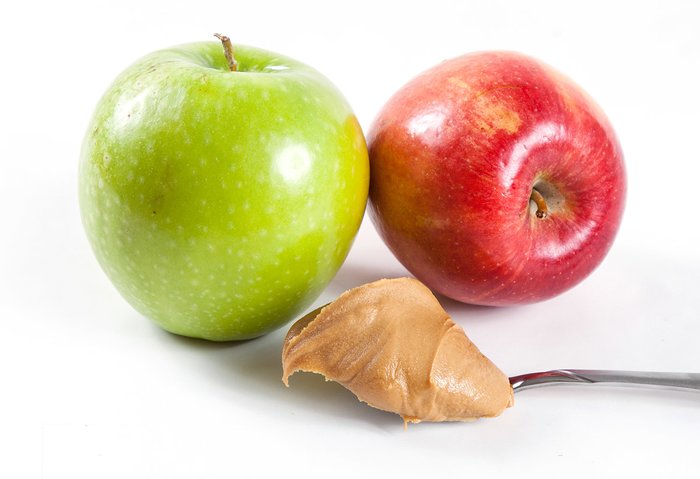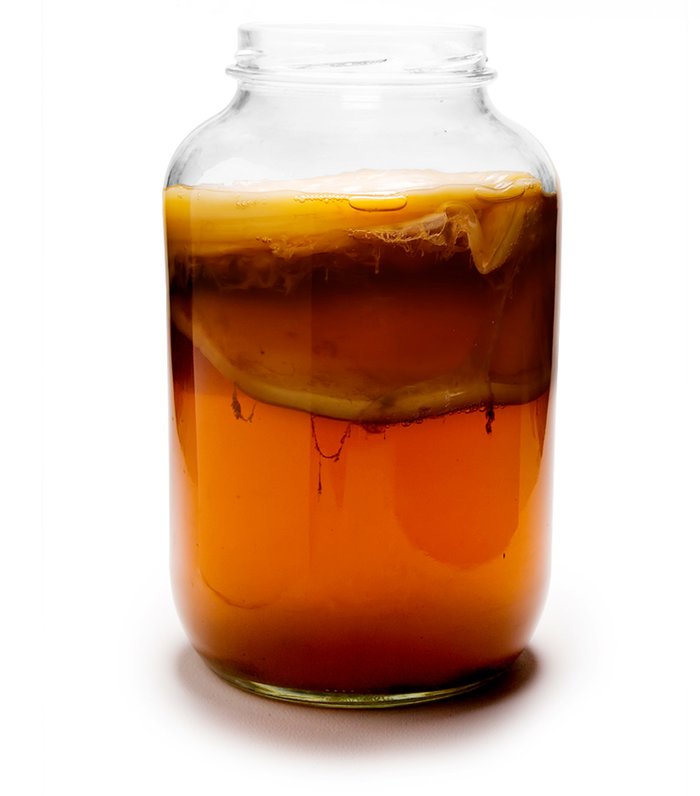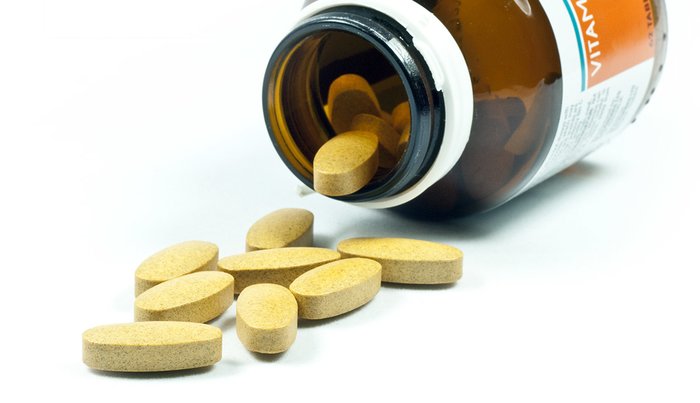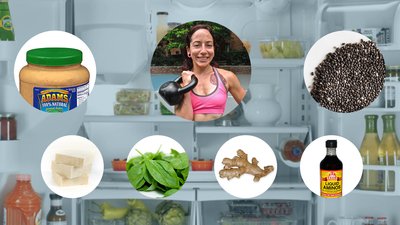Grace Kavadlo knows a thing or two about strength; her articles and videos on calisthenics, bodyweight training, and yoga have garnered thousands of followers. Grace's tattoos, no-nonsense approach to fitness, and use of unique outdoor settings make her a breath of fresh air in the industry. She's also walking, talking proof that vegans can live a strong, energetic lifestyle.
Ever wonder how meat-free athletes fuel their gains? Take a peek into the fridge of this personal trainer, group fitness instructor, and fitness model!
1. What made you decide to go vegan? How long have you been living a plant-based lifestyle?
I've been an on-and-off vegetarian since my yoga-teacher training in 2011. Practicing "Ahimsa," or nonviolence, is a core value that's heavily emphasized in the yoga community. During my travels, I met a lot of athletes who were plant-based and still insanely strong. I started questioning whether I needed to eat meat at all. I also began learning more about how the meat industry abuses animals and pollutes the environment, and I was profoundly disturbed by it. The decision was easy, and I've been a vegan for four months now.
2. Many protein-rich veggie options are also high in carbohydrates. How do you meet your daily protein intake without overdoing it on carbs?
There's a decent amount of protein in vegetables like spinach, broccoli, and asparagus, and the nutritional yeast and chia seeds I add to my meals aren't too carb-heavy. As a trainer, my schedule is pretty hectic. I'm always on the go, so I practice intermittent fasting regularly. I usually skip breakfast and eat only two meals a day—one large dinner and a small salad for lunch supplemented by snacks like nut butters, smoothies, and whole fruits and veggies.

3. You mentioned that you use flaxseed meal as an egg substitute. How does that work?
Flaxseed meal works fabulously as an egg substitute for baking, breading, and any type of recipe where you need to use eggs. They're a wonderful binder for homemade veggie burgers, add a nice, nutty texture to baked goods, and are an excellent source of omega-3 essential fatty acids, protein, and dietary fiber.
To make a flaxseed egg, combine a tablespoon of flaxseed meal with 3 tablespoons water, and let it sit for about 5 minutes before using it as a vegan egg substitute. Each serving has 30 calories, 3 grams of fat, 2 grams of carbs, and 2 grams of protein.
4. Not many people have kombucha as a go-to item in their fridge. Why do you love it, and what importance do fermented foods play in your diet?
Kombucha is a wonderful fermented probiotic drink that aids digestion and improves gut health. It's also said to help fight candida and other harmful bacteria overgrowth. It's definitely an acquired taste, but now it's offered in a ton of different flavors such as gingerade and cherry cassis. Some varieties even add chia seeds into the mix.

5. Cuban-style black beans and quinoa: complete protein for the win. What are some of your other complete-protein combinations?
I like making chia pudding with almond milk. I add tofu or seitan in with my quinoa and amaranth bowls, or I add it to my stir-fry with lots of broccoli. I eat nuts, nut butter, chia or hemp seeds, and almond-milk smoothies. I've recently been reading research that debunks a lot of the science behind needing complete protein combinations at every meal in order to get your recommended daily intake. You can eat a variety of foods that are rich in essential and nonessential amino acids throughout the day and get enough protein.
6. You supplement with B-12 and take advantage of foods like nutritional yeast. Why is B-12 supplementation important for people who don't eat meat?
The majority of food sources fortified with B-12 are animal-derived. Taking a B-12 supplement is important for vegans who avoid animal products, because it helps to preserve brain function and prevent nerve damage.

7. When determining if something is a high-quality protein source, do you pay more attention to the grams of protein per serving or the minimally-processed ingredient list?
I'm more concerned with how processed the product is rather than its protein content. A lot of the lower-quality "faux meats" can be loaded with hidden sugars and chemicals that I prefer to avoid.

